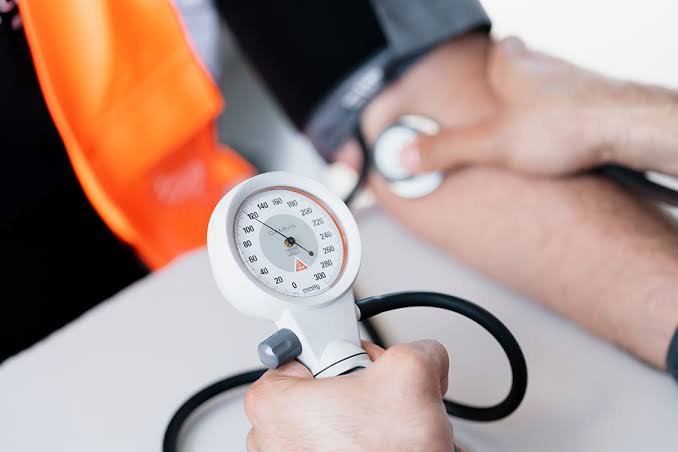Hiring the right candidates goes beyond reviewing resumes and conducting interviews. An often overlooked yet vital component of the recruitment process is the pre-employment medical.
These assessments help employers ensure that potential hires are physically and mentally capable of fulfilling their job responsibilities without posing risks to themselves, their coworkers, or the organisation.
What Are Pre-Employment Medicals?
A pre-employment health assessment is a health checkup conducted by a qualified healthcare professional before an individual begins a new role. This assessment is designed to determine if the candidate is physically and mentally fit to perform the tasks required by the job. Depending on the nature of the role, a pre-employment medical may involve various tests, including physical exams, vision and hearing tests, blood pressure checks, and drug screenings.
These assessments are particularly important for roles that involve manual labour, heavy machinery, or high-risk activities. For example, workers in construction, transportation, or healthcare may undergo more extensive checks to ensure they are fit for the specific demands of their job.
The Role of Pre-Employment Assessments
A pre-employment assessment goes beyond just checking for fitness. It plays a crucial role in identifying potential health concerns that could impact an individual’s ability to perform their job or put them at risk for injury. For example, an employee with a pre-existing condition may need certain accommodations to safely carry out their tasks. By conducting a thorough pre-employment medical, employers can better understand the candidate’s health and make informed decisions about their suitability for the role.
Benefits of Pre-Employment Medicals
1. Workplace Safety
One of the primary reasons for conducting pre-employment medicals is to ensure workplace safety. Certain jobs, especially in industries like construction, manufacturing, and mining, require employees to be physically fit to avoid accidents and injuries. For example, a construction worker may be required to lift heavy materials, which could strain their back if they have an existing medical condition. A pre-employment medical can help identify such conditions and prevent them from escalating into workplace injuries.
2. Identifying Health Risks Early
A pre-employment medical can detect underlying health issues that may not yet be apparent. Conditions such as high blood pressure, diabetes, or musculoskeletal issues can be identified early, allowing the employer to provide necessary accommodations or even suggest alternative roles within the organisation. This early detection can also help the employee manage their condition better, improving their overall health and well-being.
3. Compliance with Legal Requirements
In some industries, pre-employment medicals are required by law. For example, employees working in roles that involve operating heavy machinery or driving vehicles may need to meet certain health standards to comply with safety regulations. Employers must ensure their workforce meets these requirements to avoid legal complications and fines.
4. Reduced Absenteeism
Employees who are fit for the role are less likely to fall ill or suffer from long-term health issues, leading to fewer sick days. By conducting pre-employment assessments, employers can ensure they hire individuals who are capable of handling the physical and mental demands of their job, reducing absenteeism and improving overall productivity.
5. Improved Employee Retention
Hiring employees who are fit for the job means they are less likely to experience health-related issues that could impact their performance or lead to job dissatisfaction. This can improve overall employee retention, as employees are more likely to stay in positions where they feel healthy, supported, and capable of doing their work effectively.
Common Tests Conducted During Pre-Employment Medicals
The types of tests conducted during a pre-employment medical vary depending on the job’s physical demands. Some common tests include:
- Physical Examinations: To assess the overall health and fitness of the candidate.
- Vision and Hearing Tests: To ensure the candidate’s sensory abilities are suitable for the job.
- Blood Pressure and Heart Rate Checks: To detect any cardiovascular issues that could pose a risk during work activities.
- Drug and Alcohol Screening: To ensure the candidate is not under the influence, which could impair their ability to perform the job safely.
- Musculoskeletal Assessments: For jobs involving heavy lifting or repetitive movement, this test evaluates the strength and flexibility of the candidate’s muscles and joints.
What to Expect During a Pre-Employment Medical
The process typically begins after a job offer has been made but before the candidate starts their new role. The candidate will be required to fill out a health history form and may undergo several tests depending on the requirements of the job. These assessments are usually conducted by a third-party medical professional or clinic, and the results are shared with the employer.
It’s important to note that pre-employment medicals are conducted with confidentiality in mind. Only the relevant health information that affects the candidate’s ability to perform the job will be disclosed to the employer.
By identifying potential health risks early, employers can take proactive steps to prevent workplace injuries and improve employee health, satisfaction, and retention. As such, investing in pre-employment medicals not only benefits the company but also supports the well-being of the entire workforce, making it a win-win for all parties involved.
Passionate content writer and savvy blog publisher, Aamir crafts compelling stories and insightful articles that captivate and inform. With a knack for blending creativity and strategy, they bring fresh perspectives to every piece. Dive into their world of words and discover content that resonates.





